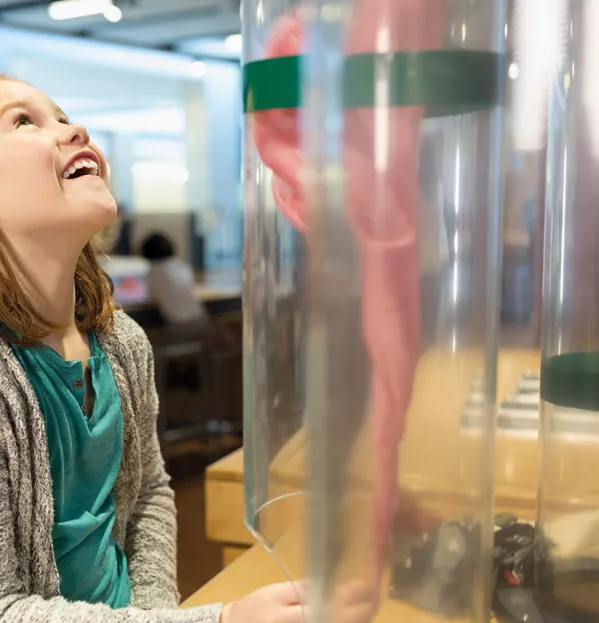‘Let’s fix the leaky pipeline linking girls to science jobs’

Prestigious private girls’ schools plan to share their physics specialists with state schools that are struggling with staff shortages, in a bid to fix the “leaky pipeline” of female scientists.
Nearly a third of the members of the Girls’ Schools Association (GSA), which represents 148 leading UK private schools, have already signed up to a project to help provide high-quality physics teaching at A level.
It follows widespread concern about the significant lack of girls choosing to study physics at school and university, and then taking up careers in science, technology, engineering and maths (Stem).
Speaking to TES in her first interview as GSA president, Charlotte Avery said tackling the issue of social mobility was a top priority of hers - and she believes that offering up enthusiastic, inspiring and high-quality physics specialists to state schools most in need could help.
‘We have been doing this because it’s the right and proper thing’
“We want to support women into science, and we know we have got excellent teachers, so I think [GSA schools] are delighted to support their schools locally. We feel we can add some value,” she said.
So far, more than 40 independent girls’ schools have committed to work with state schools through the scheme, run by charity Physics Partners - since it was launched by GSA last month. Ms Avery, head of St Mary’s School in Cambridge, is hopeful that more girls, from different types ofschools, will be encouraged to take physics at A level and consider a Stem career in the future.
The new partnership follows warnings from the government that private schools need to do more to help children from a variety of backgrounds. In a Green Paper, ministers have proposed that large private schools should offer more fully funded bursaries, sponsor an academy or set up a new free school in the state sector - or face losing their tax breaks.
Inspiration for girls
But Ms Avery said: “Partnerships between independent and state schools have been going on for years and years. We don’t need a hard or soft federation and we don’t need a multi-academy trust to be doing this. We have been doing this because it’s the right and proper thing to be doing.”
She added that, nationally, there is a “dearth” of physics teachers and specialists, particularly at A level.
She said that one solution to fix “the leaky pipeline” - the lack of physics teachers in general and the shortage of women scientists - is to “encourage girls with excellent teaching to do the subject at A level, inspired by teachers, and then to go on to university”.
‘We know that there is a dearth of physics teachers nationally’
As part of the initiative, which is expected to start in September, a physics specialist from a GSA school will lead CPD sessions with several local schools - with the support of the Institute of Physics.
“We know there is a desperate need, particularly in the North West, North East and the East region. These are the areas we have particularly focused on but we have offered this opportunity out to all GSA schools,” Ms Avery said.
The scheme is also hoping to address the shortage of physics teachers in the state sector. Last year, the National Audit Office reported that the proportion of physics classes being taught by a teacher without a relevant degree had risen from 21 per cent to 28 per cent between 2010 and 2014.
Tommy Cookson, the chairman of Physics Partners, said: “State schools find it extremely difficult to recruit teachers to teach physics - especially with a degree. We want to help these schools.”
Changing perceptions
And getting girls to study physics at A level, and then engineering as a career, is still a struggle, he added. “Girls just don’t see engineering as something that is going to suit them or they see it as something they have to be outstanding at,” he said.
“In co-ed schools the girls tend to see physics as more appropriate for boys than for them. If girls’ schools can make girls in co-ed schools more confident and aware of the possibility of engineering then that would be success.
“The scheme may well do something to change girls’ perceptions. The more attempts that are made, the more likely that perceptions will change.”
You need a Tes subscription to read this article
Subscribe now to read this article and get other subscriber-only content:
- Unlimited access to all Tes magazine content
- Exclusive subscriber-only stories
- Award-winning email newsletters
Already a subscriber? Log in
You need a subscription to read this article
Subscribe now to read this article and get other subscriber-only content, including:
- Unlimited access to all Tes magazine content
- Exclusive subscriber-only stories
- Award-winning email newsletters